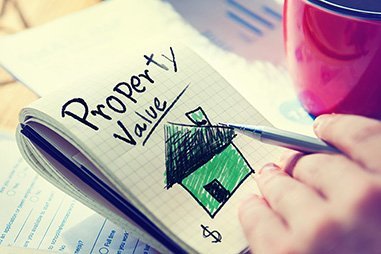What Is The Difference Between City Assessed Value vs. Market Value

Understanding a home’s true market value is about more than pictures, software assessments and price-per-square-foot. Whether you’re a current homeowner thinking of selling or are house-hunting, it’s crucial you understand what factors affect home valuation. By partnering with a Calgary real estate agent, sellers will avoid overpricing their home and buyers will ensure they get a good deal on their next home. So, how do you accurately calculate a home’s value?
What is an assessed value?
This value is assessed annually for the purpose of distributing fair and equitable taxation. It is based on The City of Calgary’s estimate of the market value of the property on July 1 of the year prior to taxation, and the characteristics and condition of the property as of Dec. 31 of the year prior to taxation. Assessors commonly arrive at this number by taking into account the following:
- Location: Location of the land parcel, residential communities used by The City of Calgary
- Land use (zoning): Land use designation of the parcel, land use by-law
- Size: Legal parcel size
- Influences: Site-specific characteristics of the parcel, land use restrictions, environmental concerns, access, floodplain.
What is the market value?
Sometimes this also refer to Fair Market Value, is the price a buyer is willing to pay, and that seller is willing to accept for a property. A skilled real estate agent can assess this value by looking at a variety of characteristics, including the following:
- External characteristics: Such as lot size, home style, the condition of the home and curb appeal.
- Internal characteristics: Such as the number of rooms and their size, the type and condition of the heating or HVAC system, the quality and condition of construction, the flow of the home, etc.
- Comps, or comparables: The sales price of similar homes that have sold in your area.
- Supply and demand: That is, how many buyers and sellers are in the area.
- Location: That is, the quality and desirability of your neighbourhood and other community amenities.
Why are these values often so different? An assessor usually estimates your property’s market value during a reassessment or if you make a physical change or improvement to it. As a result, a property may not be reassessed for many years. While your home’s market value may fluctuate with the market, your home’s assessed value is more likely to remain steady.
What Determines a Home’s Value?
You’ve likely heard the motto of real estate: “Location, location, location.” This means a home’s value relies on its location. While the home and structures on the property will likely depreciate over time, the land beneath it tends to appreciate. Why? Land is in limited supply, and a growing population puts increased demand on the housing supply. As a result, values increase.
Other factors that affect your home’s value include the function and appearance of the property, how well the home and other structures are maintained and whether the home is a lifestyle property, such as a ranch style with mountain views or beach bungalow.
Ultimately, the best indication of a home’s value is the overall supply and demand of the market. This is why we recommend you partner with a real estate agent who takes all of these factors—the assessed value, local market conditions, home features and has physically walked through and experienced your home—into consideration to determine the most accurate market value.
Jesse Davies & Associates follows the Appraisal Institute of Canada guidelines to assess the market value accurately. If you want to know what your home is worth, contact us at [email protected] for a FREE home evaluation.













